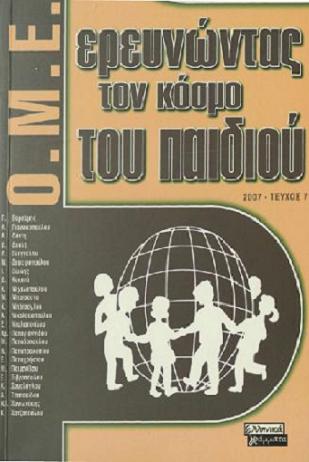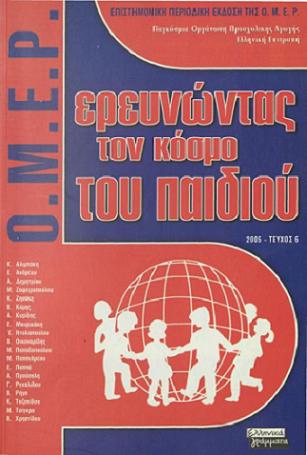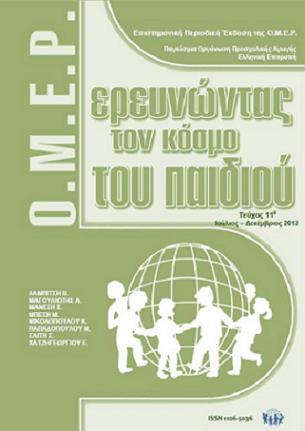Εξηγήσεις και επεξηγήσεις σε ένα μάθημα Φυσικών Επιστήμων στο Νηπιαγωγείο
Abstract
The paper explores the contribution of language in science activities. Recent Science Curriculums demand the use of specialized content, while structuring activities in the preschool Education. However, Greek pre-school Curriculum is characterized by the weak classification of knowledge and the lack of specific linguistic goals to support the structuring of the educational process. The research deals with genres in the Science Curriculum and specifically with the sequential and causal explanation. After the collection of data, by means of videorecording science activities in nursery classroom, a discourse analysis model was applied, in order to reveal the way these genres unfold in the science activities. We will argue that a genre-based approach is a tool for selecting, organizing and evaluating educational activities.
Article Details
- How to Cite
-
Ποιμενίδου (Maria Pimenidou) Μ., & Παπαδοπούλου (Maria Papadopoulou) Μ. (2007). Εξηγήσεις και επεξηγήσεις σε ένα μάθημα Φυσικών Επιστήμων στο Νηπιαγωγείο. Investigating the child’s World, 7, 164–177. https://doi.org/10.12681/icw.18229
- Issue
- Vol. 7 (2007)
- Section
- Scientific articles & educational projects

This work is licensed under a Creative Commons Attribution-NonCommercial 4.0 International License.
Authors who publish with this journal agree to the following terms:
· Authors retain copyright and grant the journal right of first publication with the work simultaneously licensed under a Creative Commons Attribution Non-Commercial License that allows others to share the work with an acknowledgement of the work's authorship and initial publication in this journal.
· Authors are able to enter into separate, additional contractual arrangements for the non-exclusive distribution of the journal's published version of the work (e.g. post it to an institutional repository or publish it in a book), with an acknowledgement of its initial publication in this journal.
· Authors are permitted and encouraged to post their work online (preferably in institutional repositories or on their website) prior to and during the submission process, as it can lead to productive exchanges, as well as earlier and greater citation of published work.





